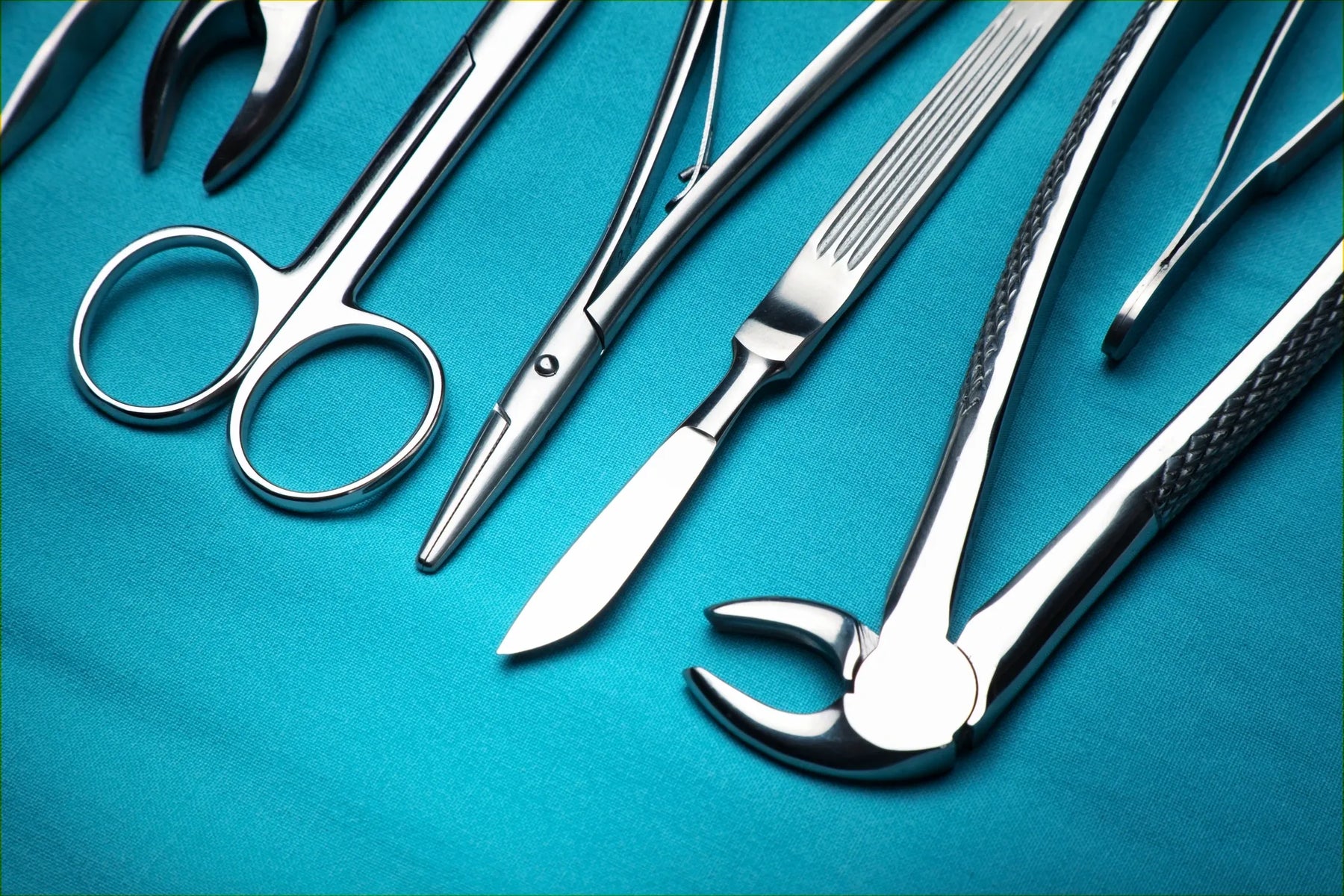
Surgical Innovations: Tools Shaping Modern Procedures
Introduction
In the fast-evolving landscape of medical science, "Surgical Innovations: Tools Shaping Modern Procedures" stand as a testament to the remarkable strides made in enhancing patient outcomes. This comprehensive article delves into the key advancements that are reshaping the way surgeries are conducted.
Evolution of Surgical Tools
From Scalpels to Robotic Innovations
In the early days, surgeries relied on basic tools like scalpels and forceps. Today, we witness a paradigm shift with the integration of robotic innovations. These advancements have not only increased precision but also opened avenues for minimally invasive procedures.
Key Innovations in Modern Surgery
Nanotechnology and Precision Instruments
Nanotechnology plays a pivotal role in creating precision instruments that operate at the molecular level. Surgeons now wield tools that offer unparalleled accuracy, minimizing collateral damage and expediting recovery.
Advancements in Minimally Invasive Surgery
Laparoscopy and Endoscopic Techniques
Minimally invasive surgeries have become the gold standard, with techniques like laparoscopy and endoscopy reducing recovery times and postoperative discomfort. Patients benefit from smaller incisions and quicker returns to normalcy.
Robotics in the Operating Room
Surgical Robots Redefining Precision
Robotic assistants are not replacing skilled surgeons but enhancing their capabilities. These robots, guided by surgeons, perform intricate tasks with precision, opening avenues for complex procedures with reduced risks.
3D Printing in Surgical Procedures
Custom Implants and Prosthetics
The advent of 3D printing has revolutionized the creation of custom implants and prosthetics. Surgeons can now tailor solutions for individual patients, ensuring a perfect fit and improved functionality.
Artificial Intelligence in Surgery
Machine Learning for Diagnosis and Planning
AI has emerged as a powerful ally in surgery, aiding in diagnosis and treatment planning. Machine learning algorithms analyze vast datasets, offering insights that contribute to more informed decision-making.
Laser Technology in Surgical Applications
Precision and Less Invasive Procedures
Laser technology has paved the way for precision surgeries with minimal invasiveness. From eye surgeries to dermatological procedures, lasers are reshaping the surgical landscape.
Smart Materials in Surgical Instruments
Enhanced Durability and Functionality
The use of smart materials in surgical instruments ensures enhanced durability and functionality. These materials adapt to changing conditions, providing surgeons with tools that evolve with the demands of the procedure.
Wireless Technology in Surgical Devices
Connectivity and Real-time Monitoring
Wireless technology has transformed surgical devices, enabling real-time monitoring and data transmission. This connectivity enhances coordination among surgical team members and allows prompt responses to unforeseen challenges.
Impact of Augmented Reality in Surgery
Overlaying Information for Enhanced Vision
Augmented reality overlays crucial information during surgeries, offering surgeons enhanced vision and guidance. This immersive technology is proving invaluable in complex procedures.
Challenges and Ethical Considerations
Balancing Innovation with Patient Safety
While advancements are exciting, they come with challenges. Striking a balance between innovation and patient safety is crucial. Ethical considerations guide the responsible integration of these innovations into medical practice.
Integration of Virtual Reality in Training
Simulated Environments for Skill Development
Virtual reality is not just for gaming; it has found a place in surgical training. Simulated environments allow surgeons to hone their skills in a risk-free space, ensuring expertise before entering the operating room.
Future Trends in Surgical Innovations
Anticipated Breakthroughs and Technologies
The future promises even more exciting breakthroughs, from enhanced AI capabilities to novel materials. Staying abreast of these trends is vital for healthcare professionals and enthusiasts alike.
Case Studies
Real-world Applications of Modern Tools
Real-world case studies showcase the successful application of modern tools. These stories provide insights into the transformative impact of surgical innovations on patient outcomes.
Success Stories
Transformative Surgeries with Innovative Tools
Behind every successful surgery is a tale of innovation. Success stories highlight how these tools are not just advancing medicine but transforming lives.
The Human Touch in Surgical Excellence
Collaboration of Technology and Skilled Hands
Amidst the high-tech tools, the human touch remains irreplaceable. Surgical excellence lies in the collaboration of cutting-edge technology and the skilled hands of compassionate healthcare professionals.
Leveraging Big Data in Surgical Procedures
Informed Decision-making for Better Outcomes
Big data analytics contribute to informed decision-making in surgeries. By analyzing vast datasets, surgeons can tailor approaches, increasing the likelihood of successful outcomes.
Sustainability in Surgical Innovations
Eco-friendly Practices in Medical Technology
As we advance, sustainability becomes paramount. Innovations must align with eco-friendly practices to ensure a responsible and lasting impact on both healthcare and the environment.
Public Perception of Advanced Surgical Tools
Building Trust and Addressing Apprehensions
Public perception plays a crucial role. Building trust and addressing apprehensions regarding advanced surgical tools are vital for widespread acceptance and understanding.
Patient-Centric Approach in Modern Surgery
Tailoring Solutions for Individual Needs
Modern surgery is increasingly patient-centric. Tailoring solutions to individual needs ensures that patients receive personalized care, improving overall satisfaction and outcomes.
Surgical Innovations: Tools Shaping Lives
Impact on Patient Outcomes and Quality of Life
In conclusion, "Surgical Innovations: Tools Shaping Modern Procedures" extend beyond technological marvels. They shape lives, offering hope, precision, and a brighter future for patients worldwide.
FAQs
Are robotic surgeries completely autonomous?
No, robotic surgeries are not autonomous. Surgeons control robotic systems to perform precise and complex tasks.
How does 3D printing benefit surgical procedures?
3D printing allows the creation of custom implants and prosthetics, ensuring a perfect fit and improved functionality.
Can AI replace human decision-making in surgery?
No, AI complements human decision-making by providing data-driven insights, but the final decisions rest with skilled surgeons.
What ethical considerations are associated with surgical innovations?
Ethical considerations include ensuring patient safety, privacy, and responsible use of technology to benefit patients.
How is virtual reality used in surgical training?
Virtual reality provides simulated environments for surgeons to practice and enhance their skills in a risk-free setting.
What role does the human touch play in modern surgery?
Despite technological advancements, the human touch remains crucial for compassionate and effective patient care.
